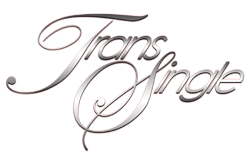User blogs
Relationship partners of transgender-identified individuals have distinctive couple-related experiences that are important to understanding. The “Organizational Diversity” field concentrates studies on the experiences of groups that are different from the archetypal male, white, heterosexual, cisgender, able-bodied and western worker. When analyzing the studies regarding gender relations, however, one perceives their concentration on the dynamics between men and women localized in developed western countries. Transgender persons are persons whose identity and/or gender expression differs from what is socially attributed to their bodies, breaking with the heteronormative logic.
In Brazil, where only the bodies within this discourse are legitimate, this group is systematically excluded from a myriad of spaces including the formal job market. Therefore, the experiences of these people at and with work are invisible to organizational diversity's theory and practice.
To explore this issue, this study analyses the perceptions that the transgender person maintains about their relations:
1. With their professional history
2. With other people in their work environment
3. With organizational policies and practices.
Face-to-face semi-structured interviews were made with six transgender persons that work in organizations. From these narratives, it was found that the person's level of passing usually influences their relations and that the ignorance regarding transgender permeates all three domains of relations.
The Conclusions are:
1. The relations with work are marked by opportunity restrictions
2. The relations in the job hold the person responsible for their own intelligibility and safety
3. The relations with the organization vary according to the way it faces transgenderism and its own voice systems.
Transgenders are “people whose gender identity is different from their assigned gender at birth”. Individuals who identify themselves as transgender usually seek gender reassignment treatments, which may or may not include gender reassignment surgery. Transgender women (or trans women) are people whose body is read as male and whose gender identity is a woman. They usually go through treatments to acquire characteristics typical of the female gender and adopt names, clothes, and mannerisms seen as female. A transgender man (or trans man), in turn, is one whose body is read as female and whose gender identity is a man. They seek to acquire characteristics that are typical of the male gender and use names, clothes, and mannerisms seen as male. When considering their choice of work and hiring and admission processes, the word employed most often by respondents is if they are passable, the degree to which others take a transgender person as cisgender.
In practice, the higher a transgender person is passable, the less likely they are to suffer transphobia: if one's gender expression allows them to be seen by others as cisgender, they will not be subject to the prejudice and discrimination aimed at transgender people, increasing their chances of entering and remaining in the formal labor market. Two aspects affect them being passable: one's name and one's appearance. The ignorance regarding transgender people not only permeates the relations transgender people keep with others in their work environment, but also with the organization itself. The result is that trans phobia creates and maintains difficulties for transgender people in entering and remaining in the formal labor market.

